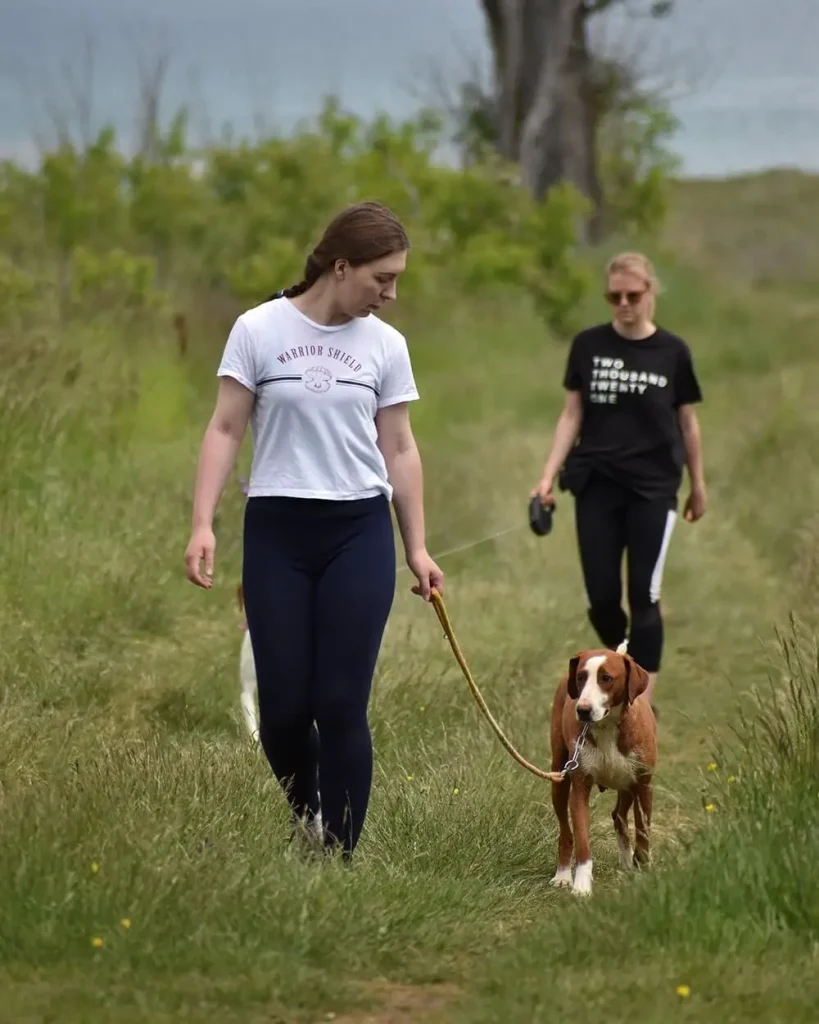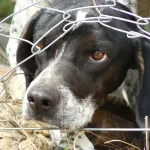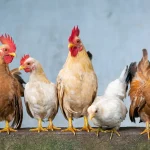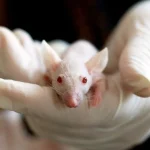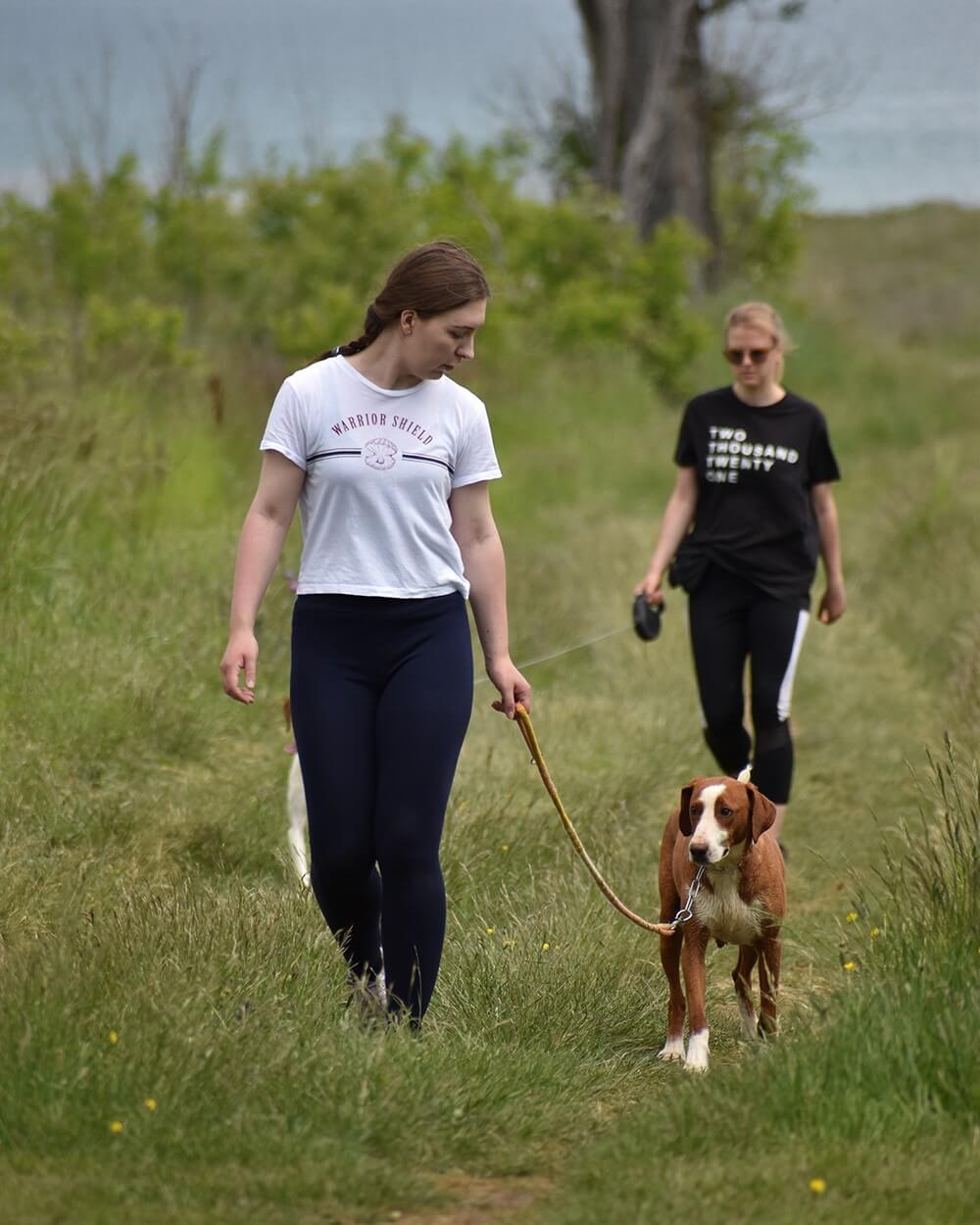
Photo credit: Udruga Prizma
Luana Matosevic and Udruga Prizma’s Creation of the Project
What was the inspiration behind this project?
Before moving to Croatia from Switzerland, I’d never seen a stray dog. When I arrived here in Zadar, me and my boyfriend found a puppy in a carton box on a road and this pushed me to start writing a project for young people on the subject of strays. Also, in the Erasmus Plus programme, there are still not many projects/youth exchanges related specifically to the protection of animals and raising awareness of their rights, and in my opinion, it is time to increase their presence. After that, the collaboration for the drafting of the project also began with other animal lovers, including the president of the Prizma association, Silvestar Petrov, and our partners from Serbia – SFERA Serbia and Ljubitelji životinja i prirode Zelene šape and from Greece – NGO Youth Active Minds.
How did the situation with COVID-19 affect the creation of this project? Was it difficult to get participants?
Yes, it affected it, because it became more complex at an organisational level: prevention measures against the spread of the virus must be taken into account (and therefore we need to avoid gatherings, try to do as many activities as we can outdoors and hope for sunny weather, find open structures for accommodation, etc.), tests must be organised before and after the trips of the participants, while always trying to stay within the project’s budget. In addition, several participants had to be changed due fear of travel or contracting the infection a few days before departure. As a result, finding participants was also more difficult than usual. But I can say that once the project started, they were all very happy to have chosen to participate and went beyond any fear of the pandemic. In addition, everybody tested negative for the novel virus at the end of the youth exchange!
How important are the youth in the development of a better and more empathic community? How important is volunteering?
We think that in order to contribute to solve the problem of strays (in general, I’m talking about animal rights), it’s more efficient to prevent the causes and therefore inform and make future owners of animals aware about how to be a responsible owner. Young people are also full of desire to do things and make changes, they put their hearts into what they do and in this way, they’re also able to motivate the less stimulated youngsters. Volunteering actions benefit the community, but they also benefit individuals on a personal level. People who volunteer, especially if they have economic/cultural/social obstacles, have the opportunity to feel part of a group, to feel useful and active in society, to take initiatives. And then it certainly increases the sensitivity of those who do it and this is never a bad thing. It is important on all levels and is also a way to learn new things in a non formal way.
About Animal Welfare
With regard to responsible ownership:
What are the most common reasons why people abandon their dogs?
- Unwanted pregnancies (due to the absence of control of the dog outside the home, the absence of sterilisation and awareness campaigns on the subject)
- Families which rush to get a puppy without being informed about what it means to take care of an animal (the dog becomes too big, too expensive, too big of a commitment)
- A dog is seen as something to be used (for hunting, for competitions, for fighting) and then when it is no longer in the best condition, it is no longer needed
- Dogs with complex behaviours that the owner doesn’t know how to manage (and there is also lack of qualified dog trainers)
- The owner moves/has children/doesn’t have time for the dog anymore, or experiences economic issues
What are the things that people need to consider before getting a pet?
- Having a pet is a responsibility as it is a sentient living being that needs care, space, socialisation and movement for many years.
- It is useful to be informed about which breed you want to adopt – depending on the lifestyle you have. Not all breeds, for example, are optimal for families with children or for elderly people.
- Neutering, microchipping and vaccinating pets is important!
- In the case of dogs, especially for some breeds, training is important by using positive reinforcement (treats, playtime, pets, verbal rewards)
- It is certainly a daily commitment, but the love that the animal gives back is priceless. Furthermore, the benefits of having an animal are many: having a pet decreases stress neurotransmitters (epinephrine and norepinephrine), is an anti-depressant and helps us to stay active (and as such, we reduce the chances of developing numerous cardiovascular diseases).
Volunteering, Animal Rights and Adoptions
For all those who are interested in helping and volunteering in the shelters, what are the things animal shelters need most?
Dog walkers, dog groomers, the cleaning out of their boxes, doing maintenance activities on the structure, adoptions and donations!
What can we do and who can we contact when we see an abandoned and abused animal?
Here in Croatia, if the dog has an owner/it is in a private place: ask for a local vet inspection from the vet inspector of the city. If he doesn’t do anything, contact the regional veterinary inspection office. If the office doesn’t react, you can contact the office responsible for veterinary inspections at the Ministry of Agriculture. (Useful Source: https://prijatelji-zivotinja.hr/index.en.php?id=1547).
If the dog is in a public place:
- Try to find out if the dog has an owner (check the collar)
- Bring the animal to a local vet and ask for the microchip to be read
- If the animal doesn’t have a microchip, contact a local non-profit animal welfare organisation, or the municipality (depending on the city).
Other good things to do:
- Try to find out information about the animal in the neighbourhood by asking around and by posting photos on social media
- Provide care, water and food for the animal
- Try to find a temporary or permanent home for the animal
- Call the police (and if the news goes public the police tend to react more quickly)
What is the law regarding keeping your dog chained permanently outside the house in Croatia?
From this year on “Prijatelji Zivotinja” and other members of the Animal Protection Network are calling for an urgent amendment to the existing Animal Protection Act by introducing a complete ban on keeping dogs chained. There is no law in the Animal Act that which prohibits keeping dogs on a chain, only general sentences that say:
Animal Protection Act, Part 1, Article 5.16 “It is prohibited to neglect an animal in terms of its health, housing, nutrition, and care”
Animal Protection Act, Part 1, Article 5.19 “It is prohibited to restrict the movement of animals in a way that causes them pain, suffering, injury or fear, in contravention of the provisions of this Act”
About Udruga Prizma
How many members does Udruga Prizma currently have?
52.
Are there any activities and projects you want to promote?
We’re doing a regional project called Generator Kulture which is for young people from Benkovac and the surrounding small villages. The aim is to organise several activities and events for them, for giving the opportunity to youngsters with fewer opportunities (young people who live in remote places) to do something creative in their spare time. One example is the following – this summer we’re going to repeat the workshop “Kamp Ilustracija”, where the participants will focus on storytelling and the art of illustration while staying in contact with nature during the camp week.
If interested in doing volunteer work, visit Udruga Prizma’s site and Erasmus + Program and learn more about their upcoming and current projects.
If interested in adopting and doing volunteer work in an animal shelter, CLICK HERE.
For more lifestyle news in Croatia, follow TCN’s dedicated page.

